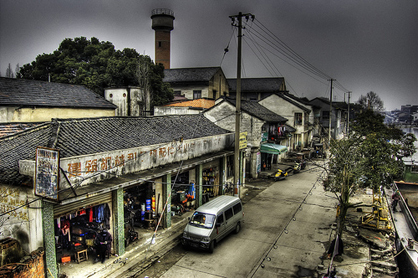Wenzhou’s private loan network collapses, leading to economic devastation
The city of Wenzhou, China, has transformed from a busy and buzzing coastal metropolis, famous for its innovative entrepreneurship and ability to generate revenue, into a precautionary tale. The city of 7 million has seen its system of private loans cave in, bringing the devastation of endless bankrupt companies and boarded-up factories, reported WWD.
Located in eastern China in the province of Zhejiang, the manufacturing nucleus boasts more private businesses than the usual Chinese city. Years ago it was highly regarded for its private, underground lending structure.
Reputable businesspeople and their more unprincipled counterparts loaned money to entrepreneurs seeking to start new ventures but lacking the capital to secure bank loans. Slowly the system grew and riches abounded in the Chinese city.
Then the system collapsed.
Experts argue that the degree to which this uncertain loan system has spread throughout China, with some claiming more than 5 percent of business loans are conducted privately rather than carried out via banks.
After export demand decreased in 2008 and Wenzhou's economy weakened along with it, the credit situation constricted. For the next couple of years, companies kept their momentum by means of private lending, completing factory orders through obtaining credit from private lenders. As the lenders’ interest rates were significantly greater than traditional bank loans, factory owners wound up facing colossal debt they had no means to pay back.
Experts guess hundreds of enterprises and factories have closed, and a minimum of 80 company heads during the past several months have flown the coop to avoid paying their debts. After the government promised that economic planners would lend a hand to small- and medium-sized businesses, many have chosen to come back.
The current situation: Factories are inactive, credit nowhere and businesses lifeless. “For us, the normal people, things haven’t changed that much,” Wang Qin, who owns a kitchen appliances store, said to WWD. “Prices are going up and people are buying less, but we can adapt.”
The sign of economic troubles is witnessed around town, with used car sellers bursting with luxury vehicles for extremely low prices.
Manufacturing managers in Wenzhou claim they cannot produce: They have the orders, but not the raw materials nor the means to pay employees.
“We just want the government to formalize the private lending system,” said an anonymous steel boss. “I think we can work things out from there.”
Zhou Dewen, head of Wenzhou’s small- and medium-sized business association, urges the central government to take action. The continued existence of smaller enterprises is crucial to the region’s economy.
“We cannot rely on government efforts exclusively, we should try to save ourselves … Most companies are operating and recovering from the panic mode gradually,” Zhou said. “But the general environment for small and medium enterprises cannot be changed overnight.”
Wenzhou’s private credit case has critical, broader implications for China as a whole. Shanghai-based economist Andy Xie maintained the country’s private loan system appears extensive, which could potentially spell trouble for China’s economy, especially the smaller business already experiencing financial difficulties.
“The size of the market is impossible to estimate,” Xie said. “If the slowdown in bank deposit growth partly reflects this phenomenon, it could be several trillion yuan in size. When it bursts, it may lead to significant social instability.”
Tagged in: china, business, economics, loan, credit, wenzhou, private,




